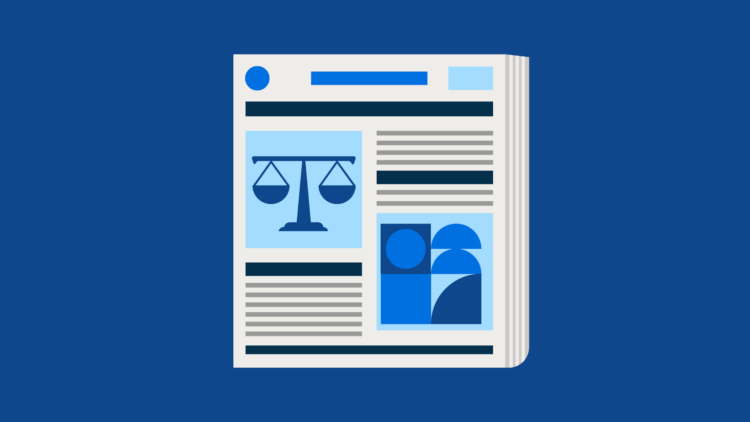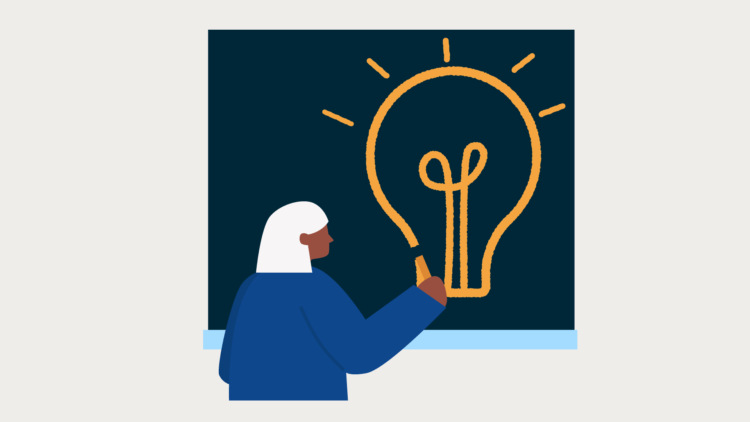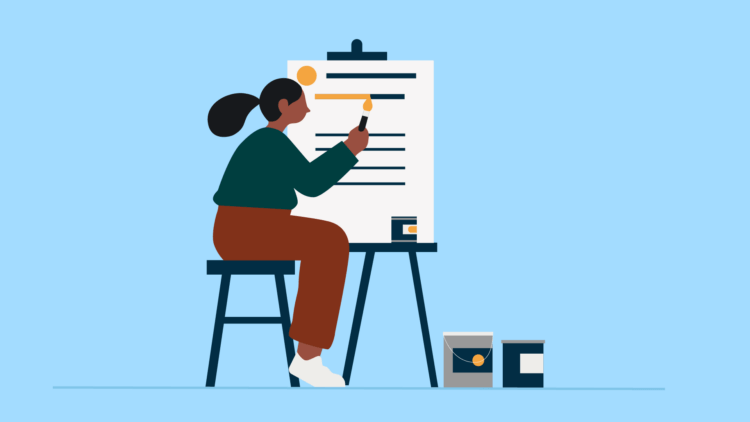While we may not quite be jumping into spaceships for our daily commutes, a la “The Jetsons,” the rate at which technology interacts with and changes our lives is moving at the speed of light.
Your legal practice is no different.
At the 2016 Clio Cloud Conference, Nehal Madhani, CEO of Alt Legal, a modern IP docketing software solution, spoke about why technology in law is here to stay. Learn more about IP docketing.
The question is no longer “should you be a tech-savvy lawyer,” but rather, “how can you make technology your competitive advantage against both peer and larger firms?”
How does tech help my legal practice?
As legal professionals, we’re no longer strangers to the time-saving benefits of technology in the workplace. Look at how typewriters, then personal computers, then email, and now cloud-based software have dramatically improved productivity at law firms.
With more software solutions coming online to save time and increase efficiency, the competitive divide between modern firms that implement these solutions and more traditional, paper-based firms will only increase. Here, smaller firms have a big advantage—they can quickly implement technology to automate repetitive tasks at their firms.
How does this work? Today, websites and applications have the ability to “talk” to each other to exchange useful data. As Nehal explains, this is done through APIs, or application program interfaces, which are, as Nehal explained, “essentially a glue that allows two applications to work together.” For example, Clio’s API is what allows Clio to seamlessly integrate with over 50 other leading applications.
This connection between different technologies makes practicing law easier and gives your firm a competitive edge. Here’s how Nehal puts it:
As an example in the legal context, if you want information about your trademark filing, you’d have to go over to the U.S. PTO’s website to access it. Instead, vendors like my company can automatically—through an API that’s provided by the U.S. government—retrieve information about your trademark and send you an alert without you ever having to navigate their website.
Other types of software use triggers to build automated workflows, like the popular software Zapier. It’s as simple as “if this happens, then do this.” You could have your phone to send itself a reminder text telling you to pack an umbrella if the forecast in your city calls for rain, or automatically create a new task and follow up reminder when you receive an email about a case. In short, automation can save you hours each week.
What legal software do I need?
Today, many tech-savvy lawyers use different software and apps to run their entire business. This is particularly important for solo and small firm lawyers who need to wear a lot of hats. “[As a solo], you have accounting, invoicing, marketing, and then finally you get to do a little bit of legal work,” Nehal explained.
If you’re looking to use more technology at your firm, Nehal suggested a few options to consider. Some are software tools, while others are websites that offer on-demand services.
- Billing software: Think QuickBooks Online and programs like Harvest and ViewABill.
- Legal marketplaces: These are sites like Hire an Esquire, where small firms can quickly ramp up with on-demand personnel help.
- Small business marketplaces: Sites like Upcounsel, where you can find individuals or small businesses looking for attorneys, can be a simpler way to find the right clients.
- Document assembly tools: These let you build a template for documents you create often, so that you can automatically generate similar documents rather than start from scratch each time. Companies like Clio and and Hot Docs provide this service.
- Practice area-specific software: Allegory Law for litigators and Alt Legal for IP Lawyers are just two examples of applications for specific practice areas.
You may like these posts
How do I thrive as a tech-savvy lawyer?
Truly thriving as a tech-savvy lawyer means more than just choosing the right tools. Getting the most out of legal technology is about saving you time so you can spend more hours doing substantive legal work (or investing in business development your firm, or spending more time with your family), so you’ll need to find creative ways to leverage technology for a bigger cause.
Nehal suggested two examples of how you can do that:
1. Sell margins instead of hours
If you can use technology to effectively automate certain parts of your practice, you can start selling margins instead of hours by charging flat fees. As Chris Small has put it:
Our work isn’t time sensitive, it’s expertise sensitive. When you start thinking in terms of value provided it’s much easier to set a price that reflects the true value to the client, even if it only takes you five minutes.
Think of this example of two hypothetical trademark lawyers, Jamie and Jordan.
- Jamie charges a flat $500 fee. She uses tech to do client intake and automatically create a filing. She completes this in less than hour.
- Jordan bills $300 an hour. He uses the same tech, but is only able to bill one hour.
Jamie’s effective billable rate is $200 more than Jordan’s for the same work, because she sells a transaction and not an hourly rate. In this case, both lawyers have used automation in their practices, but Jamie is the truly tech-savvy lawyer. She’s taken things a step further by billing differently.
2. Use tech to enhance the client experience
Legal tech can help you save time and money, but it can also help you provide a better client experience. Think of your legal software as a toolkit: Use it to compete with your peers by providing a client experience that sets you apart.
Certain tools can make things easier for clients, while others increase transparency, helping to build trust for a better lawyer-client relationship.
Take software like ViewABill, for example. It requires lawyers to log their time, so clients can see what they’re being billed for and why whenever they choose. This might cut down on time spent negotiating over charges, but it can also help corporate clients feel more comfortable with the services they’re paying for.
What about ethics for legal technology?
Finally, beyond knowing what tools to use and how to get the most out of them, being a tech-savvy lawyer means having a strong grasp of how ethics rules will impact how you can use technology in your practice.
From an ethics standpoint, it’s becoming more and more important that lawyers have a basic knowledge of technology.
So far, 27 states have adopted a revised version of Comment 8 on Rule 1.1 of the American Bar Association’s Model Rules of Professional Conduct. The amended rule makes it clear that keeping abreast of changes of the law and its practice includes keeping abreast of the benefits and risks of relevant technology. (Bob Ambrogi keeps a running tally of states that have adopted Comment 8, for those interested).
In the future, this could have serious implications for lawyers who fail to embrace tech. Nehal put forth this scenario:
I imagine a case where you miss something and you make a mistake. Could the client argue that you breached your ethical duty because you didn’t educate yourself on all the technology that may have prevented that? Could that be part of the basis of a claim for malpractice?
In addition to assessing the benefits and risks of technology, once lawyers actually start choosing and using certain tools, there are a number of other ethics rules to consider:
- Rule 1.6 on Confidentiality of Information. In the modern era, keeping client information confidential means more than just closing your office door when having a conversation. Are you doing enough to safeguard your clients’ information and any client communications against an unauthorized data breach? If you’re using technology, how are your vendors protecting your firm’s data? Make sure that you’re encrypting all of your data and communications, and that you’re being careful about what you share online, for starters.
- Rule 1.15 on Safekeeping Property and Rule 1.16 on Declining or Terminating Representation. When you’re storing information for clients, or clients who have terminated or declined representation, you need to keep that data secure as well. You also need to look at how your vendors are storing client information to ensure they’ve taken appropriate steps to mitigate any risk.
- Rule 5.3 on Responsibilities Regarding Nonlawyer Assistance. If you’re using legal technology, the responsibilities listed under this rule may be worth considering. This applies to people who are nonlawyers, but Nehal asked whether it may apply to the assistance lawyers might get from tech as well. “Do you have to do the same diligence and watch over in the same way that you would over a paralegal or an assistant?”
Become a tech-savvy lawyer and see your practice thrive
Legal technology gives modern lawyers a competitive edge. When used well, it helps them move faster, be more efficient, make fewer mistakes, and earn more revenue.
As Nehal said, legal tech is here to stay, and those who don’t embrace it risk being left behind. On the other hand, lawyers who do their due diligence and take the time to invest in the right tools will stand out from their peers and see their businesses succeed.
Still, don’t rush. Be strategic, figure out where legal tech fits into your practice, and go through an in-depth analysis to make sure the tools you’re considering will truly benefit your firm.
Nehal’s final piece of advice? “Just have fun with legal tech.” In the modern era, there are a myriad of ways that legal tech could help you manage your firm more efficiently, so don’t be afraid to try them!
Watch the full talk here:
About Nehal
Nehal Madhani is an attorney and the founder and CEO of Alt Legal. Alt Legal’s cloud-based IP docketing software is trusted by Am Law 200 firms, boutique firms, and in-house legal departments to prepare and manage hundreds of thousands of IP filings and deadlines daily. Before starting Alt Legal, Nehal practiced as an attorney at Kirkland & Ellis, LLP. He is a Python/Django developer and serves on the board of Django-NYC, a nonprofit organization with nearly 2,500 software developers as members. He is also a CodeX fellow at Stanford Law School. Nehal speaks regularly about the intersection of legal practice and technology at bar associations and legal conferences, including the Clio Cloud Conference, New York County Lawyers Association, and the Florida Bar.
We published this blog post in August 2017. Last updated: .
Categorized in: Technology









